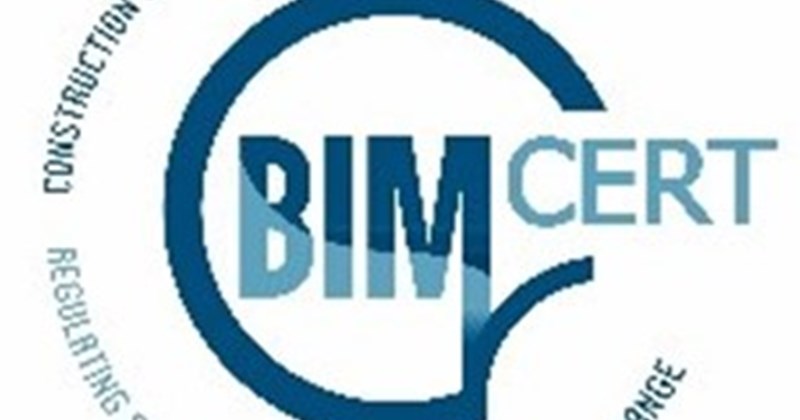
Belfast Metropolitan College and BIMcert
27/10/2020
Digitalisation - a vital enabler of Net Zero Construction BIM (Building Information Modelling) has become a key requirement in the Built Environment and a fundamental tool for any AEC industry professional nowadays. Digitalisation of the construction sector is increasingly recognised as a potential game changer for the sector, which could contribute significantly to sustainable development and the EU 2020 Strategy*
As such BIM has become an integral part of the new Digital construction reality, based on the use of data enriched 3D models and in the use of a digital collaborative working environment. The use of standardised processes ensures all relevant information is created and managed through the lifecycle of a construction project. With BIM, Digital and integrated emerging technologies such as VR, AR and AI technology, together with computer simulations and generative design, can be used to supply information on every aspect of the project.
BIM is also recognised as an enabling digital tool towards efficiency (in both design, construction and management of building assets) that can drive us to more energy efficient building stock and carbon footprint reduction.
Belfast Met led the first FE Horizon 2020 project in the UK, as part of the BIMcert consortium which developed the BUILD UP strategy of enhancing the skills in green construction.

BIMcert build-up work curve
The BIMcert project ( https://platform.energybimcert.eu/) is a European wide project aimed at providing an industry aligned training and qualification scheme for the skills required to support the implementation of BIM across the construction supply chain.
BIMcert have developed a blended suite of BIM training curriculum and tools, which will allow geographically dispersed construction project teams to use technology to enhance information exchange and collaboration.
Belfast Metropolitan College was responsible for the accreditation of the curriculum developed as part of the project. It included recognition on National or European Frameworks, or other possible certification options that would bring recognition of the learners’ skills. The chosen method was to align the project curriculum to recognised standards, to allow pathways of certification or accreditation through an awarding organisation (OCN NI).
OCNNI (Open College Network Northern Ireland) was the chosen awarding organisation to meet the requirements of the project and to facilitate future online developments and enhanced digital delivery.
This necessitated close collaboration with OCNNI staff and the development of a flexible and suitable framework and methods of delivery to meet deadlines and the nature of the target audience, underpinned by rigorous standards of validation of learners’ achievement.
OCN NI qualifications in digital construction have been developed from level 2 through to level 4 to meet the range of skills and roles that require upskilling in BIM workflows. 10 new qualifications have been developed during the project with several more in the pipeline. The team are also looking at new methods of bite sized accreditation and the development of hybrid certification/recognition to meet the needs of industry, the challenges of the current COVID induced restrictions and to address trans-European vocational mobility obstacles.
*EC (2012). Strategy for the sustainable competitiveness of the construction sector and its enterprises https://eur-lex.europa.eu/legal-content/en/TXT/?uri=CELEX:52012DC0433
